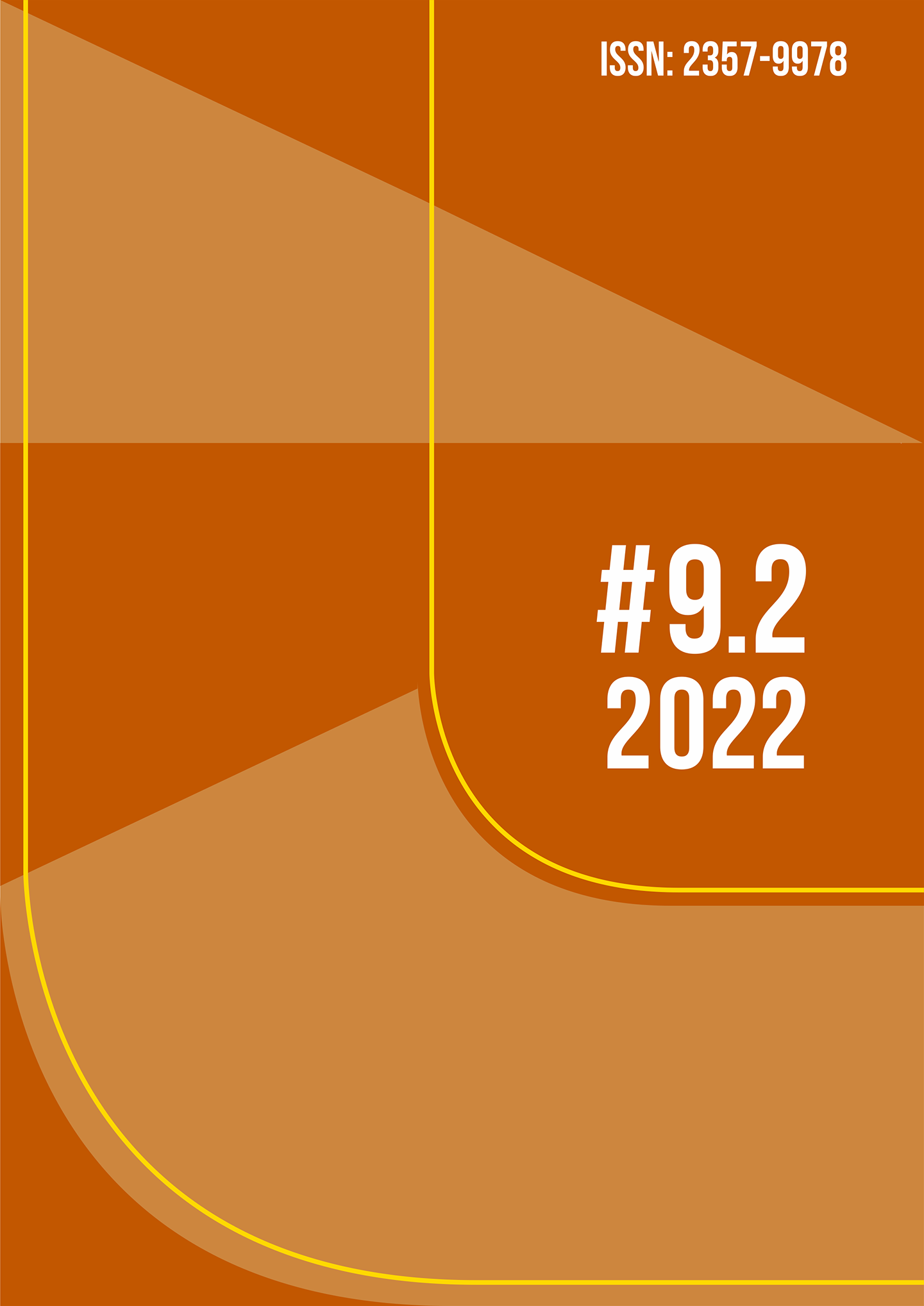Mobilizing the concept of intersectionality in the light of the work of Lélia Gonzalez: three case studies in dance
DOI:
https://doi.org/10.36025/arj.v9i2.28902Keywords:
dance, intersectionality, Lélia Gonzalez, racism, black bodyAbstract
The article aims to analyze the trajectory of three Brazilian black dance artists seeking to understand how the social markers of class, race and gender have operated in the constitution of their careers, favoring or disfavoring social and professional mobility. It presents a reading of the concept of intersectionality based on the work of the black intellectual Lelia Gonzalez, establishing relationships with dance research in search for a decolonial praxis.
Downloads
References
AHMED, Sara. On Being Included: Racism and Diversity in Institutional Life, Durham and London: Duke University Press, 2012.
AKOTIRENE, Carla. Interseccionalidade. São Paulo: Jandaíra, 2019.
ALVES NETO, Manoel Gildo. Falarfazendo dança afro-gaúcha: ao encontro de mestre Iara. 2019. 192 p. Dissertação (Mestrado em Artes Cênicas). Universidade Federal do Rio Grande do Sul, Porto Alegre, 2017.
ASSIS, Dayane N. Conceição de. Interseccionalidades. Salvador: UFBA, Instituto de Humanidades, Artes e Ciências, 2019. 57 p. (Superintendência de Educação a Distância, Universidade Federal da Bahia).
BALÉ de pé no chão. Direção: Marianna Monteiro e Lilian Solá Santiago. Produção: Terra Firme Digital. Coprodução: SESC TV, 2005. Documentário. (52min).
BALLESTRIN, Luciana. América Latina e o giro decolonial. Revista Brasileira de Ciência Política, n. 11, p. 89-117, 2013. Disponível em: https://doi.org/10.1590/S0103-33522013000200004. Acesso em: 12 agosto 2022.
CARDOSO, Claudia Pons. Amefricanizando o feminismo: o pensamento de Lélia Gonzalez. Revista de Estudos Feministas, Florianópolis, v. 22, n. 3, p 965-986, set-dez. 2014.
CERQUEIRA, D. et al. Atlas da violência 2019: retratos dos municípios brasileiros. Brasília: Ipea; FBSP, 2019. Disponível em: https://www.ipea.gov.br/portal/index.php?option=com_content&view=article&id=36488&Itemid=432. Acesso em: 28 abr. 2022.
CRENSHAW, Kimberlé Williams. Demarginalizing the intersection of race and sex: a black feminist critique of antidiscrimination doctrine, feminist theory and antiracist politics. The University of Chicago Legal Forum, Chicago, n. 140, p. 139-167, 1989. Disponível em: https://chicagounbound.uchicago.edu/cgi/viewcontent.cgi?article=1052&context=uclf. Acesso em: 17 abr. 2022.
CRENSHAW, Kimberlé. Mapping the margins: intersectionality, identity politics, and violence against women of color. Stanford Law Review, Minneapolis, v. 43, n. 6, p. 1241-1299, jul. 1991.
DANTAS, Mônica Fagundes. Dance Studies in Brazilian Universities: Enhancing Dance Fields and Interrogating Dance Studies Geography. In: DAVID, Ann; HUXLEY, Michael; WHATLEY, Sarah (orgs.). Dance Fields: Staking a Claim for Dance Studies in the 21st Century. Londres: Dance Books, 2020. p. 105-131.
DAVIS, Angela. Mulheres, raça e classe. São Paulo: Boitempo Editorial, 2016.
DOMINGUES, Petrônio. Movimento Negro Brasileiro: alguns apontamentos históricos. Revista Tempo, Niterói/RJ, v. 12, n. 23, p. 100-122, 2007. Disponível em: http://www.scielo.br/pdf/tem/v12n23/v12n23a07.pdf. Acesso em: 22 abr. 2022.
FREYRE, Gilberto. Casa-grande e senzala: formação da família brasileira sob o regime da economia patriarcal. 51. ed. São Paulo: Global, 2006.
GAVIOLI, Izabela Lucchese. Estudo do processo de criação em dança: experimento em neuromodulação com o coreógrafo Rui Moreira. 2019. 224 f. Tese (Doutorado em Artes Cênicas) Programa de Pós-Graduação em Artes Cênicas, Universidade Federal do Rio Grande do Sul, Porto Alegre, 2019.
GONZALEZ, Lélia. A categoria político-cultural de Amefricanidade. Tempo Brasileiro, Rio de Janeiro, n. 92/93, p. 60-82, jan./jun. 1988.
GONZALEZ, Lélia. Por um feminismo afro-latino-americano: ensaios, intervenções e diálogos. In: RIOS, Flávia; RATTS, Alex. Por um feminismo afro-latino-americano: ensaios, intervenções e diálogos. Rio de Janeiro: ZAHAR, 2020, p. 217.
MOREIRA, Rui. Entrevista com Rui Moreira. Entrevistador: Luciano Correa Tavares. Porto Alegre: 2020.
NASCIMENTO, Beatriz. A mulher negra no mercado de trabalho. In: Hollanda, Heloísa Buarque de (org.). Pensamento feminista brasileiro. Rio de Janeiro: Bazar do Tempo, 2019. p. 259-263.
RATTS, Alex; RIOS, Flávia. A perspectiva interseccional de Lélia Gonzalez. In: PINTO, Ana Flávia Magalhães; CHALHOUB, Sidney. Pensadores negros, pensadoras negras: Brasil, séculos XIX e XX. Belo Horizonte: Editora UFRB, 2016. p. 379-409.
RATTS, Alex; RIOS, Flávia. Lélia Gonzalez. São Paulo: Selo Negro, 2010. (Retratos do Brasil Negro).
RIBEIRO, Djamila. O que é lugar de fala? Belo Horizonte: Letramento, 2017.
RIOS, Flavia. Améfrica Ladina: The conceptual legacy of Lélia Gonzalez (1935-1994). LASA Forum, Pittsburgh, v. 50, n. 3, p. 75-79, 2019.
ROY, Simon N. L’étude de cas. In: GAUTHIER, Benoît (ed.). Recherche sociale: de la problématique à la collecte des données. Québec: Presses de l’Université du Québec, 2003. p. 159-184.
SEGATO, Rita. Crítica da colonialidade em oito ensaios: e uma antropologia por demanda. Rio de Janeiro: Bazar do Tempo, 2021.
SILVA, Ingrid. A sapatilha que mudou meu mundo. Rio de Janeiro: Globo Livros, 2021.
YIN, Robert K. Case Study Research: Design and Methods. Sage Publications, 1994. 171 p.
Downloads
Published
How to Cite
Issue
Section
License
Copyright (c) 2022 Suzane Weber da Silva, Anielle Lemos, Manoel Gildo Alves Neto, Luciano Correa Tavares, Monica Fagundes Dantas, Claudia Muller Sachs (Autor)

This work is licensed under a Creative Commons Attribution-NonCommercial-ShareAlike 4.0 International License.

This work is licensed under a Attribution-NonCommercial-ShareAlike 4.0 International (CC BY-NC-SA 4.0) License.
Authors retain copyright, while licensing their work under a Attribution-NonCommercial-ShareAlike 4.0 International (CC BY-NC-SA 4.0) License.


 English
English Português (Brasil)
Português (Brasil)
